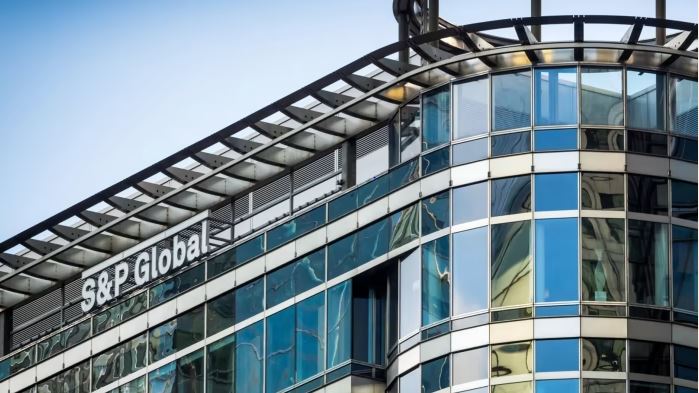Gov’t may be seeking ‘IMF programme flexibility’ – S&P
… ahead of 2026 exit
By Joshua Worlasi AMLANU and Ebenezer Chike Adjei NJOKU
Government may be quietly exploring ways to loosen some terms of its US$3billion International Monetary Fund (IMF) programme, even as it publicly affirms full commitment to the reforms, according to emerging signals in S&P Global Ratings’ latest assessment.
A subtle cue from S&P Global Ratings suggests government could seek programme flexibility.
S&P’s decision to raise the nation’s foreign currency credit rating to CCC+ from selective default (SD) followed what it called “recent steps” to finalise commercial debt restructuring.
However, the agency also highlighted “spending overruns, particularly during election years” and cited “constrained policy flexibility” as a key risk, prompting speculation government could seek adjustments in IMF conditionality.
While the finance ministry has denied any renegotiation talks, S&P’s nuanced language suggests that the new administration under President John Mahama might be testing the waters for more flexible programme terms.
“Despite setbacks from significant fiscal slippage in 2024, alongside initial indications in early 2025 that government may look to renegotiate with the IMF, government has renewed its commitment to the existing programme,” a portion of the report read.
The likely focus will be on easing restrictions related to social spending and adjusting reform timelines, as the country works toward concluding its programme by 2026.
Speaking at a joint press briefing in mid-April, finance minister Cassiel Ato Forson pushed back on claims of renegotiation, saying government is “fully committed to implementing this programme”.
He noted that the fourth IMF review focused on ensuring the programme remains on track, adding that the authorities will achieve its objectives and supersede them.
Still, the S&P report suggests the post-election economic reality may warrant recalibration. The agency acknowledges that the Mahama-led administration inherited “large expenditure arrears” and faces ongoing pressure to address high inflation, public discontent and limited fiscal room – all of which could motivate a search for greater leeway within the IMF’s framework.
Similarly, IMF Mission Chief Stéphane Roudet said discussions during the latest review did not touch on a potential extension or renegotiation.
“The focus has been entirely on how to make sure that the programme remains on track,” she said.
Yet with over a year remaining, government has not ruled out adjustments.
Mr. Forson stated that going forward, whatever decision government makes will be communicated early enough.
S&P’s updated outlook was cautiously optimistic. The credit upgrade reflects progress in restructuring external debt and a rebound in external liquidity, supported by a record current account surplus in 2024. Gold exports and remittance inflows surged, helping usable foreign exchange reserves climb to US$4.6billion.
However, fiscal risks remain. The country posted significant arrears in 2024 and S&P expects fiscal consolidation to be more gradual than government anticipates. Interest payments, though down from prior years, still consume a quarter of government revenue and inflation at 21.2 percent remains far above the central bank’s target range.
The administration has launched institutional reforms, including proposed amendments to the Public Financial Management (PFM) Act and the creation of an independent fiscal council. But the execution of such reforms, particularly under public pressure for relief and in the face of politically sensitive issues like the controversial anti-LGBTQ+ bill, may require policy trade-offs.
According to S&P, the debt trajectory is improving – with net general government debt forecast to drop from 71.4 percent of GDP in 2024 to 47.4 percent by 2028. Nonetheless, the ratings agency warned that fiscal underperformance or tightening financing conditions could trigger a downgrade within the next 12 to 18 months.
The IMF programme, which has so far disbursed US$2.36billion, is scheduled to end in May 2026. With growth rebounding – GDP expanded 5.7 percent in 2024 – government may view the remaining window as an opportunity to strike a balance between meeting IMF targets and responding to domestic pressures.
The post Gov’t may be seeking ‘IMF programme flexibility’ – S&P appeared first on The Business & Financial Times.

